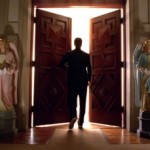 Lost is dead. Long live Lost. And so it ends, in much the same way it began—with a close-up of Jack’s eye, staring straight up past the tall stalks of bamboo that circled the sky above. This time however, that eye would close, and with it, our six-season journey that took us right back to where we started—with questions about a mysterious show that seemed to parallel the mysteries of life. For some, the journey was far more compelling than the destination. For others, it was the perfect resolution and they can walk away feeling fulfilled. Whatever you thought about the conclusion, the one thing most viewers can agree on is that the show challenged us to think in ways we might not have otherwise. In short, Lost was a real trip. And what a long, strange trip it’s been.
Lost is dead. Long live Lost. And so it ends, in much the same way it began—with a close-up of Jack’s eye, staring straight up past the tall stalks of bamboo that circled the sky above. This time however, that eye would close, and with it, our six-season journey that took us right back to where we started—with questions about a mysterious show that seemed to parallel the mysteries of life. For some, the journey was far more compelling than the destination. For others, it was the perfect resolution and they can walk away feeling fulfilled. Whatever you thought about the conclusion, the one thing most viewers can agree on is that the show challenged us to think in ways we might not have otherwise. In short, Lost was a real trip. And what a long, strange trip it’s been.
 Wanna know why the Man In Black is really trapped on the island? It’s not because he’s malevolence, evil, or darkness, and it’s not because Jacob wouldn’t let him leave. It’s because he hasn’t overcome his issues. And what are his issues? Up to now, all we know is that he seems to be terribly frightened of adolescent boys. Hopefully, we’ll get a better answer next week, but as ridiculous as this might sound, I actually think there may be something to it.
Wanna know why the Man In Black is really trapped on the island? It’s not because he’s malevolence, evil, or darkness, and it’s not because Jacob wouldn’t let him leave. It’s because he hasn’t overcome his issues. And what are his issues? Up to now, all we know is that he seems to be terribly frightened of adolescent boys. Hopefully, we’ll get a better answer next week, but as ridiculous as this might sound, I actually think there may be something to it.
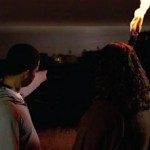 In Lost’s “Everybody Loves Hugo,” Richard complains that Jacob “never tells us what to do.” Richard’s frustration echoes clearly into our world. For most of us, Jacob, aka God, never seems to tell us what to do. He just sits back and lets us make our own mistakes, leading to countless horrors and suffering. For many, this is a major argument as to why there is no God. Yet, when watching Lost, we see that Jacob does in fact tell the Losties what to do—sometimes directly, sometimes through his lists or clues, and sometimes through messages that he passes on through his emissaries. But certainly this doesn’t happen in our world. Here, there are no ghosts of Michaels past, otherworldly whispers, or visits from dimension-hopping Desmonds to guide us on our journey through life. Or…is there?
In Lost’s “Everybody Loves Hugo,” Richard complains that Jacob “never tells us what to do.” Richard’s frustration echoes clearly into our world. For most of us, Jacob, aka God, never seems to tell us what to do. He just sits back and lets us make our own mistakes, leading to countless horrors and suffering. For many, this is a major argument as to why there is no God. Yet, when watching Lost, we see that Jacob does in fact tell the Losties what to do—sometimes directly, sometimes through his lists or clues, and sometimes through messages that he passes on through his emissaries. But certainly this doesn’t happen in our world. Here, there are no ghosts of Michaels past, otherworldly whispers, or visits from dimension-hopping Desmonds to guide us on our journey through life. Or…is there?
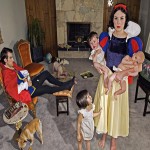 Once upon a time, you believed that you were very special. That you’d grow up to make a difference in the world, be paid handsomely for doing so, find true love, have some equally special children, and live happily ever after. Unfortunately, life hasn’t worked out quite as good as the fairytale. So, were we all lied to? In Lost’s “Happily Ever After” Desmond discovers that there is a reality where all his dreams can come true. So where is this reality and do we need to be as special as Desmond to get there?
Once upon a time, you believed that you were very special. That you’d grow up to make a difference in the world, be paid handsomely for doing so, find true love, have some equally special children, and live happily ever after. Unfortunately, life hasn’t worked out quite as good as the fairytale. So, were we all lied to? In Lost’s “Happily Ever After” Desmond discovers that there is a reality where all his dreams can come true. So where is this reality and do we need to be as special as Desmond to get there?
 Just like any story, your life story is filled with twists and turns, an array of interesting characters, moments of bliss and despair, of success and failure, of challenges that will help you grow, and questions that will cause you to wonder. Among the cast of characters there will be love-interests, villains, tricksters, mavericks and mentors. There will be many friends and enemies, and millions of extras. However, there will only be one hero. That hero, is you.
Just like any story, your life story is filled with twists and turns, an array of interesting characters, moments of bliss and despair, of success and failure, of challenges that will help you grow, and questions that will cause you to wonder. Among the cast of characters there will be love-interests, villains, tricksters, mavericks and mentors. There will be many friends and enemies, and millions of extras. However, there will only be one hero. That hero, is you.
 In “Ab Aeterno,” Richard Alpert loses his faith after discovering that the plan he’s dedicated so much of his life to, may in fact, not exist. From the very same episode, some Lost fans began feeling the same. For six years, Lost viewers with an insatiable hunger for answers have anxiously waited to find out what the mysterious island actually is. At the writer’s strike a couple years ago, Carlton Cuse held up a picket sign that read: “Do You Want To Know What The Island Is??” Thousands of fans have dreamed up imaginative theories, all in an attempt to solve the show’s complex riddle. And now at last we have our answer! According to Jacob himself, the island is…A CORK!!! (crickets)
In “Ab Aeterno,” Richard Alpert loses his faith after discovering that the plan he’s dedicated so much of his life to, may in fact, not exist. From the very same episode, some Lost fans began feeling the same. For six years, Lost viewers with an insatiable hunger for answers have anxiously waited to find out what the mysterious island actually is. At the writer’s strike a couple years ago, Carlton Cuse held up a picket sign that read: “Do You Want To Know What The Island Is??” Thousands of fans have dreamed up imaginative theories, all in an attempt to solve the show’s complex riddle. And now at last we have our answer! According to Jacob himself, the island is…A CORK!!! (crickets)
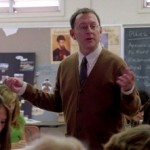 For many of us, our lives don’t work out the way we planned. But that doesn’t mean that there isn’t a plan. It’s very apropos that Lost’s “Dr. Linus” episode was named for a teacher since it taught us some very valuable lessons about who we are and what our purpose here may be. In other words, it really was all about you.
For many of us, our lives don’t work out the way we planned. But that doesn’t mean that there isn’t a plan. It’s very apropos that Lost’s “Dr. Linus” episode was named for a teacher since it taught us some very valuable lessons about who we are and what our purpose here may be. In other words, it really was all about you.
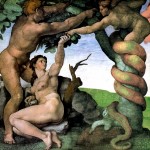 Whereas “Lighthouse” was all about our enlightenment, “Sundown” explored our dark side—temptation. “I can see her lying back in her satin dress in a room where you do what you don’t confess,” sang Gordon Lightfoot in his 1974 hit “Sundown.” The song is all about succumbing to temptation, hence once again revealing the double entendre that the Lost writers are so fond of using in their episode titles. When the sun goes down, man gets tempted by the dark. Why a “satin” dress? Sounds like Satan, don’t it?
Whereas “Lighthouse” was all about our enlightenment, “Sundown” explored our dark side—temptation. “I can see her lying back in her satin dress in a room where you do what you don’t confess,” sang Gordon Lightfoot in his 1974 hit “Sundown.” The song is all about succumbing to temptation, hence once again revealing the double entendre that the Lost writers are so fond of using in their episode titles. When the sun goes down, man gets tempted by the dark. Why a “satin” dress? Sounds like Satan, don’t it?
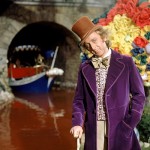 Lost episode 6.4, “The Substitute,” has so many parallels with Willy Wonka and the Chocolate Factory , I am convinced that the movie can be used to reveal Lost’s endgame. While I’m sure those parallels also exist within the actual Charlie and the Chocolate Factory book, since I am more familiar with the 1971 Gene Wilder movie (having seen it dozens of times), I will make my comparisons there. Sure, this may turn out to be nothing more than stuff and nonsense, but in the words of Wonka, “a little nonsense now and then is relished by the wisest men.” So, let’s get to it because we have so much time and so little to do. Strike that…reverse it.
Lost episode 6.4, “The Substitute,” has so many parallels with Willy Wonka and the Chocolate Factory , I am convinced that the movie can be used to reveal Lost’s endgame. While I’m sure those parallels also exist within the actual Charlie and the Chocolate Factory book, since I am more familiar with the 1971 Gene Wilder movie (having seen it dozens of times), I will make my comparisons there. Sure, this may turn out to be nothing more than stuff and nonsense, but in the words of Wonka, “a little nonsense now and then is relished by the wisest men.” So, let’s get to it because we have so much time and so little to do. Strike that…reverse it.
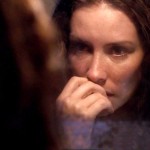 Have you ever met someone for the first time who seemed really familiar to you? Strangely, this person likely wound up being an important player in your life. This exact scenario happens to Jack in LA X when he recognizes Desmond on the plane. In What Kate Does, Kate’s parallel life is once again setting up the scene for her to have a connection with Claire and baby Aaron. What if the reason for this familiarity is because we are recognizing these people from our future, or from the story of our destiny?
Have you ever met someone for the first time who seemed really familiar to you? Strangely, this person likely wound up being an important player in your life. This exact scenario happens to Jack in LA X when he recognizes Desmond on the plane. In What Kate Does, Kate’s parallel life is once again setting up the scene for her to have a connection with Claire and baby Aaron. What if the reason for this familiarity is because we are recognizing these people from our future, or from the story of our destiny?
 Lost is dead. Long live Lost. And so it ends, in much the same way it began—with a close-up of Jack’s eye, staring straight up past the tall stalks of bamboo that circled the sky above. This time however, that eye would close, and with it, our six-season journey that took us right back to where we started—with questions about a mysterious show that seemed to parallel the mysteries of life. For some, the journey was far more compelling than the destination. For others, it was the perfect resolution and they can walk away feeling fulfilled. Whatever you thought about the conclusion, the one thing most viewers can agree on is that the show challenged us to think in ways we might not have otherwise. In short, Lost was a real trip. And what a long, strange trip it’s been.
Lost is dead. Long live Lost. And so it ends, in much the same way it began—with a close-up of Jack’s eye, staring straight up past the tall stalks of bamboo that circled the sky above. This time however, that eye would close, and with it, our six-season journey that took us right back to where we started—with questions about a mysterious show that seemed to parallel the mysteries of life. For some, the journey was far more compelling than the destination. For others, it was the perfect resolution and they can walk away feeling fulfilled. Whatever you thought about the conclusion, the one thing most viewers can agree on is that the show challenged us to think in ways we might not have otherwise. In short, Lost was a real trip. And what a long, strange trip it’s been.









